Fashion is one of the largest laboured industries in the world with an estimated 1 in 6 people involved in making the clothes we wear. Particularly since the collapse of the Rana Plaza clothing manufacturing complex in Bangladesh in 2013, which killed over 1,000 workers – the world began to wake up to the dangers of fast fashion.
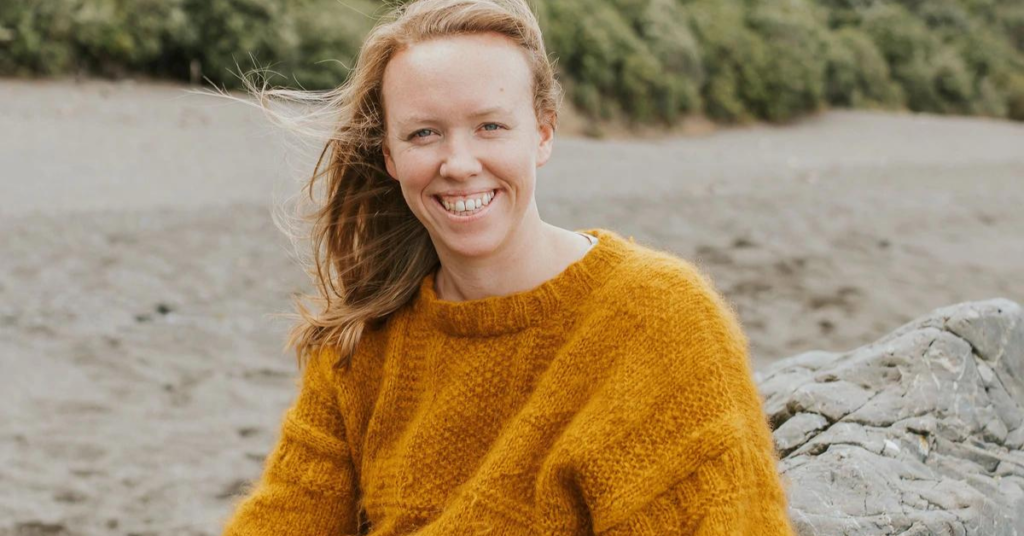
Samantha Jones, Founder of Little Yellow Bird
With greater transparency in supply chains, fairer wages for workers, and increasing consciousness over the lifecycle of our clothing – the way we shop for clothes has changed forever, because – even if it’s cheap for you – it always costs someone.
B Corp Little Yellow Bird creates sustainable, fair trade, ethical clothing that you can feel good about wearing. Their fully traceable garments are made from 100 per cent rain-fed organic cotton that you can track all the way from cotton seed to the factory floor.
Certified since 2016, Little Yellow Bird takes us ‘Behind The B’ to unpack how every decision they make has ethics at the core, leading to a culture of constantly pushing themselves to find more innovative solutions to improve the industry, and themselves.
“I started Little Yellow Bird because I wanted to know who made my clothes. The more I learned, the more I understood how everything needed to change – from the cotton seed and the dye systems, to water usage and disposal. Therefore, every aspect of our production from farm to factory is traceable.”
— Samantha Jones, Founder of Little Yellow Bird

Photo: Little Yellow Bird
Promoting a more flexible work environment
Little Yellow Bird is a company where our people make all the difference, and we’re an incredibly diverse workplace with people from all walks of life. We support and encourage working arrangements that assist in striking a balance between an employee’s paid work and other life commitments and responsibilities.
Our business is not a place where clocks are watched and time sheets are filled in. Here, it’s common practice that, if an employee has an appointment or an important commitment, or wants to incorporate study into their week, we will endeavour to enable them to do this by being flexible with work days and hours. And lately, with the pandemic in mind, we opted for some of our team to temporarily work from home.
Ensuring the health and safety of our team is paramount, and flexibility is necessary in an ever-changing environment.
We also want to nurture our unique culture and make Little Yellow Bird a great place to work. We’ve seen increased productivity, innovation, creativity, and overall happiness as a result of flexible working.
One of our goals for this year is to further develop our existing wellbeing policies to ensure we promote and improve the health and wellbeing of our team. Creating a wellbeing plan involves working with the entire team to identify what they want and need to get out of it.
Expecting the unexpected is part of life; we’re constantly facing new challenges and uncertainties. Our mental and physical wellbeing should always be our priority and this is particularly true during periods of prolonged stress, like the pandemic.
Everyone’s experiences of mental health differ, but all can benefit from the support of good policy. Creating spaces to have these conversations is so important and we love having practical tools to help us guide these conversations.
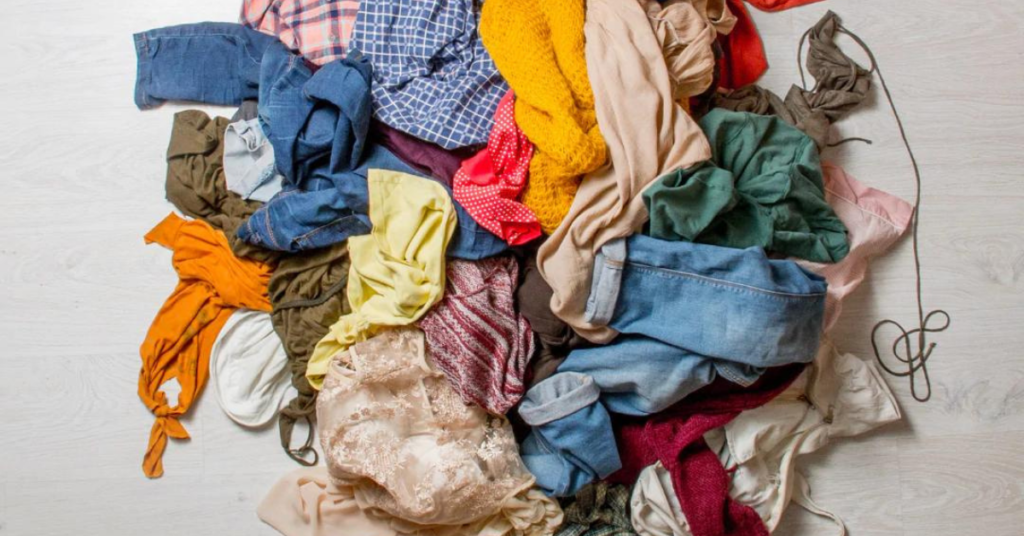
Photo: Little Yellow Bird
Creating a more circular economy to reduce waste
Here at Little Yellow Bird, we strive to cut back on waste to landfill as much as possible, and reduce our environmental impact wherever and however we can.
We know that cotton is a valuable resource and it takes a lot of work to grow and bring it to consumers as finished textile products. That’s why we’re working with other leading brands to join forces and reduce waste.
In mid-2021, we launched our closed-loop cotton recycling project, Circular Cotton – an industry collective reducing textile waste in Aotearoa, New Zealand. Designed for both corporate partners and for individual customers, our business partners send us their end of life uniforms and production off-cuts, while private customers can now send us their end-of-life clothing to be given a new life as recycled fibre.
So far, we have already diverted more than 8,000kg of textile waste from landfill, and we’re just getting started.
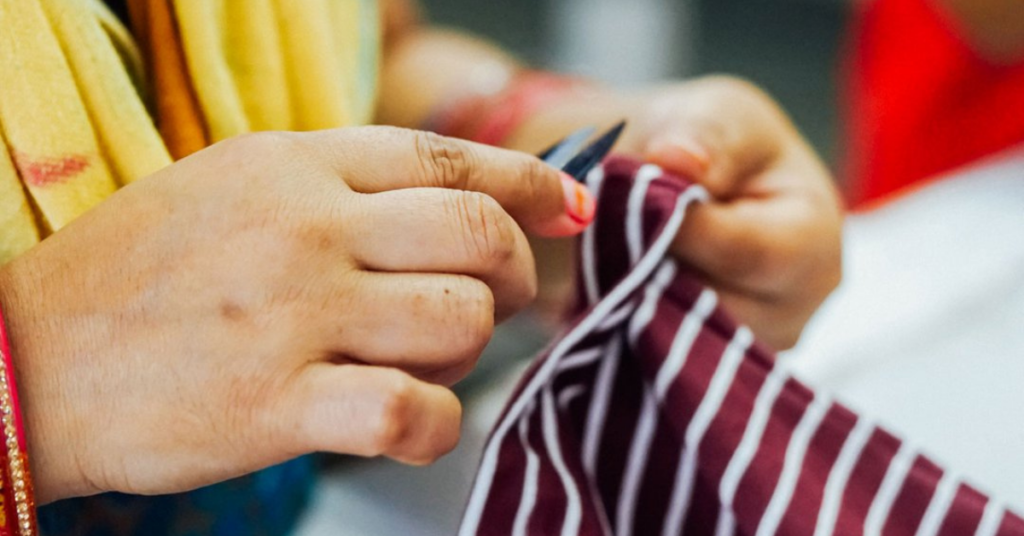
Photo: Little Yellow Bird
We’re passionate about making sure every step of our production is sustainable, and that includes the things you may not be able to see, like energy.
Recently, two of our factories in India have become solar powered. Running our factories on renewable energy means we will significantly reduce our greenhouse gas emissions. By using solar power, we’re tapping into a power source that never fails, diversifying our energy supply and reducing dependence on non-renewable fuels.
This is a huge step in the right direction, but we know that there’s more to do, and we’re working on ways to assist the change where help is needed.
When our clothes arrive on your doorstep, they are consciously wrapped in sustainable packaging. The front of our courier labels are completely compostable, while the back is recyclable. Our product tags are also fully biodegradable, made using the cotton offcuts created in the production process.
This year, we are pushing the boat out even further with our recycling initiative; committing to exploring and trialling various recycling methods for the most common types of textiles, not just cotton. We have recently started accepting socks (because why not?!) as part of our Take Back program, and we are growing and expanding our capabilities from there.
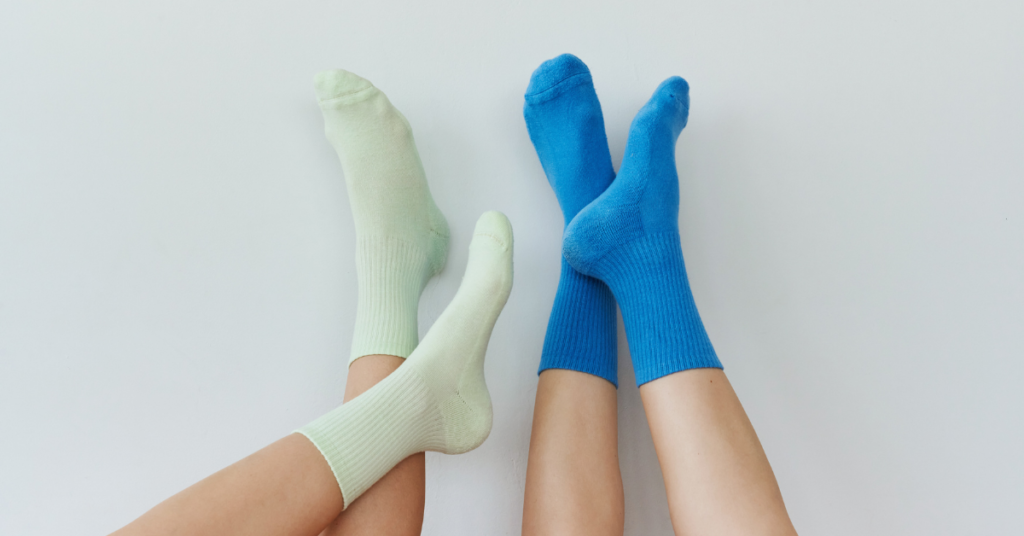
Photo by Daria Liudnaya from Pexels
Changing needs in an uncertain economy
Alongside changes to how we work, we have also kept in mind the changing needs of our customers throughout the pandemic, particularly in terms of how they structure their fundraising or merchandise plans in an uncertain economy.
One of our responses has been to develop an Apparel Partnerships program, where brands, community groups and creative entrepreneurs can work with our team to formulate risk-free presale campaigns whether you’re after screen printing, embroidery or a digital print application.
The response to this offering has been extraordinary, attracting all manner of groups from those looking to care for declining manta ray populations to self-employed artists looking to recreate their global mural work in T-shirt form.
By removing the constraints of paying outright for a pre-set stock quantity, let alone all of the administrative tasks associated with selling goods, collecting payments and delivering items to individual customers, we’re assisting values-aligned communities to streamline their fundraising efforts and get back to whatever it is they do best!
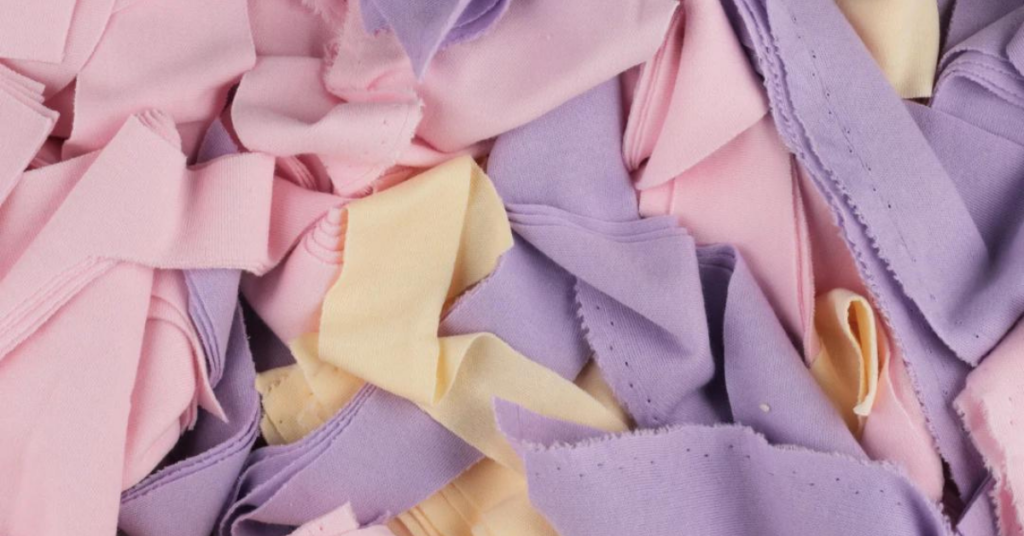
Photo: Little Yellow Bird
Fashion, but make it circular
At Little Yellow Bird, we hold our brand and our suppliers to high standards. We’ve made sure that at every step of our supply chain, our workers are met with fair trade, inclusive and ethical work environments. But, unfortunately, this is not yet the norm across the industry.
This year, we are stepping up our efforts to educate communities on being sustainable in their wardrobe choices. We are developing a program to run in schools to teach textile recycling to younger generations and change attitudes towards ethical, sustainable, organic wardrobes.
Already, we know younger community members are very aware of the impact of fast fashion, and we want to be able to help them understand ways of achieving a circular model for apparel and how they can play a role in that.
Thank you to Little Yellow Bird for this fantastic piece, a version of which was originally published on their blog as part of B Corp Month 2022, inviting you #BehindTheB to uncover what makes a B Corp a better business.
Read more about how B Corps are responding to changing expectations for brands and businesses ↗

